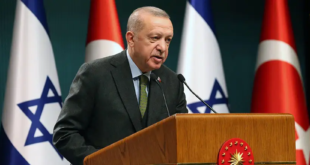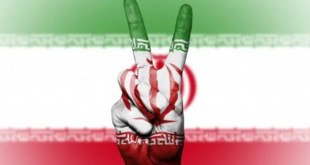Ferryman Hisham freely acknowledges that the poor and dangerous conditions of Baghdad’s roads that drive residents of the capital to despair are, for him at least, a godsend.With bridges over the Tigris River damaged, blocked to traffic or heavily congested, his boating business is booming.
“I have more and more customers,†says Hisham as he fires up the engines of his ferry and sets off with yet another load of about 20 passengers across the sluggish, muddy Tigris River that snakes through the capital.
For decades, Baghdad’s millions of residents had 13 bridges they were able to use to cross the river, but the number of crossing points has decreased since the US-led invasion in 2003.
On April 12, a truck bomb destroyed the Sarafiyah Bridge, a main artery connecting the eastern and western halves of the capital.
Other overpasses are closed to traffic. One is the Mualaq Bridge, which is now enclosed in a US military base, and the July 14 Bridge, which falls within the highly fortified Green Zone.
Those using bridges still in operation have to pass through heavily guarded police roadblocks, which cause never-ending traffic jams.
In recent months, Baghdad has had more reason to want to find alternative ways to cross the Tigris, says a man who gave his name only as Mohammad, seating himself on Hisham’s boat.
“I prefer to avoid the risky districts,†says the 33-year-old worker who shuttles daily between two dangerous sectors of the city: The Sunni enclave of Adhamiyah, and the Shiite bastion of Kadhimiyah.
Clashes between rival armed groups have led to the closure of the Aama Bridge, which connects the two sides.
And it is in the shade of this now disussed structure that short and stocky Hisham, barely more than 20 years old, offers his services to those in need of a short ride across the river.
“I built my boat here in Baghdad. It cost me $3,250, and the engine cost about the same amount,†says Hisham, who asked that only one name be used.
Operating ferries is part of his family’s tradition. Since the 1990s, he and his brothers and cousins have been running a small flotilla of boats and dividing the takings of their increasingly lucrative enterprise between them.
The service is cheap, $0.20. But the sheer volume of passengers means Hisham does not have to fear he will lose his investment in his boat or its expensive engine.
“There are good days and bad days,†he says in answer to a question about his average daily takings.
“But we have many customers on days of festivals and pilgrimages,†he adds.
“I truthfully don’t know how much money we make. I am young and it’s my eldest brother who deals with the accounts.†White, sky blue or canary yellow, the wooden boats that ply the Tigris all day long range up to about five metres long. The more luxurious boast small canopies to protect passengers from the searing summer sun.
Abu Ali, in his 50s, is a regular customer. He lives in Kadhimiyah and crosses to the other side of the river each day to sell his vegetables.
“I come here every morning by bicycle which I then take on the boat with me,†Ali says with a broad grin. “In the evening I return.†But the river crossing is not without risk in a city where no area is without its dangers.
As the boat approaches the shore, the engine cuts out and Hisham, more embarrassed than panicked, tries in vain to restart it as the current pushes the boat and its 20 passengers towards an Iraqi army post.
Finally the engine splutters back into life and the boat reaches the shore.
“If it had not started again, my brother and I would have jumped into the river to push the boat,†says the young ferryman.
 Eurasia Press & News
Eurasia Press & News



